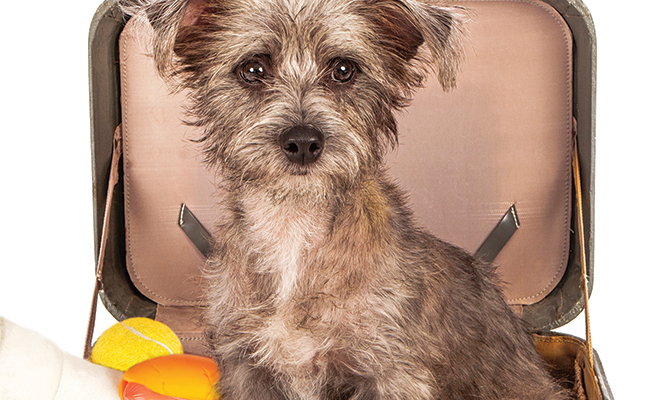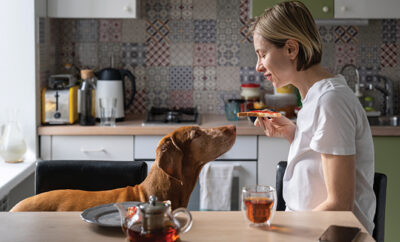
Boarding Your Pet
It’s unavoidable. You pet must be boarded. You’re worried about finding the best kennel for them, but it may be as easy as asking at your veterinarian’s office. Many veterinarians offer boarding facilities; many do not. They’re often expensive, but they may be the best choice, especially if your pet is elderly, a pup or has medical problems. Even if the vet doesn’t offer boarding facilities, they may be able to recommend a reputable kennel in your area.
Before you board your pet
The American Kennel Club recommends that you use common sense and your senses when visiting a possible kennel. How does the kennel smell? It is okay for the kennel to have a different smell than your house, but it should be well ventilated and without offensive odors.
Ask to see the area where your dog will be staying. Is it clean? Is the temperature comfortable for the season? Will the animal be kept in a run or a crate? What about the dog runs? How often will the dog be exercised? Is there a secure area where the pets can roam and play? Is the area clean? How often is it cleaned?
Ask what requirements the kennel has for vaccinations. Reputable kennels will require up-to-date certificates to be presented the day of the boarding that include rabies, distemper/parvo and bordatella. Other vaccinations may be required, such as the quick vaccination for kennel cough. Ask and get your pet vaccinated well in advance of their stay.
Inquire if there are restrictions. Some kennels will not board puppies, elderly dogs or animals that have medical conditions. Inquire about the rates and if there are any special add-on fees, such as a charge for giving medication. If you like the kennel, make your reservations early. Bookings can be heavy during the holidays, and you don’t want to find out there is no space available when you need it.
On the day you leave
Take your pet in early. This gives the staff and your pet a chance to get to know each other. It gives the animal a chance to settle down before the staff leaves for the evening.
Have your vaccination card and your credit card ready. You should also have a list of medications, special instructions, proportioned packages of food (especially if a special diet is required), your contact numbers, a favorite toy and a piece of old toweling with your scent on it.
Don’t make a big deal out of leaving the dog. Say goodbye and leave. It’s a little like your child’s first day at kindergarten; the bigger deal you make out of leaving the dog, the bigger deal it is for the dog!
Picking up your pet
Complete the financial arrangements before receiving your dog. Ask if there were any problems or medical conditions you need to be aware of. Check your dog over before leaving.
Thank the staff, receive your dog and take her home. She may be thirsty and excited, and she may be tired for the first few days. Relax and let her settle down into the home routine. Keep a close watch on her potty training for a couple of days; she may be accustomed to the kennel’s routine and not yours. Be vigilant and err on the side of caution.
Other options
Friends and family: Friends or family who have their own pets and are willing to take on yours may be the best option if your budget is limited or you have an animal that needs special considerations because of age or infirmity. See if they are willing. Be sure to introduce the pet to them well before the stay.
Pet Hotels and Spas: Luxurious accommodations are available in many places, even in your local pet store. Dogs may be boarded in private suites with their own bedding and a companion (if you have two dogs you want to board at the same time, for example). Conveniences such as a TV tuned to pet channels are provided. Special play areas with or without other dogs can be arranged. Training sessions may be provided if needed.
Dogs may take advantage of the boarding time to get a bath with grooming while they stay at the hotel.
Cats: Many of the above considerations apply to cats, but you need to ask if the facility is prepared to board cats. Some have separate areas for the cats and are willing to board them; others are not.
What’s next?
Hopefully the experience went well for both you and your pet. The animal enjoyed her vacation and so did you. This will make future experiences go more smoothly, and perhaps you will even enjoy boarding the animal over the weekend, so you and your significant other can spend a weekend at the hotel after an evening of theater and dining. It’s a thought. HLM
Sources: akc.org, clickerzoneuk.co.uk, dogs.about.com, ncraoa.com and petsmart.com.







